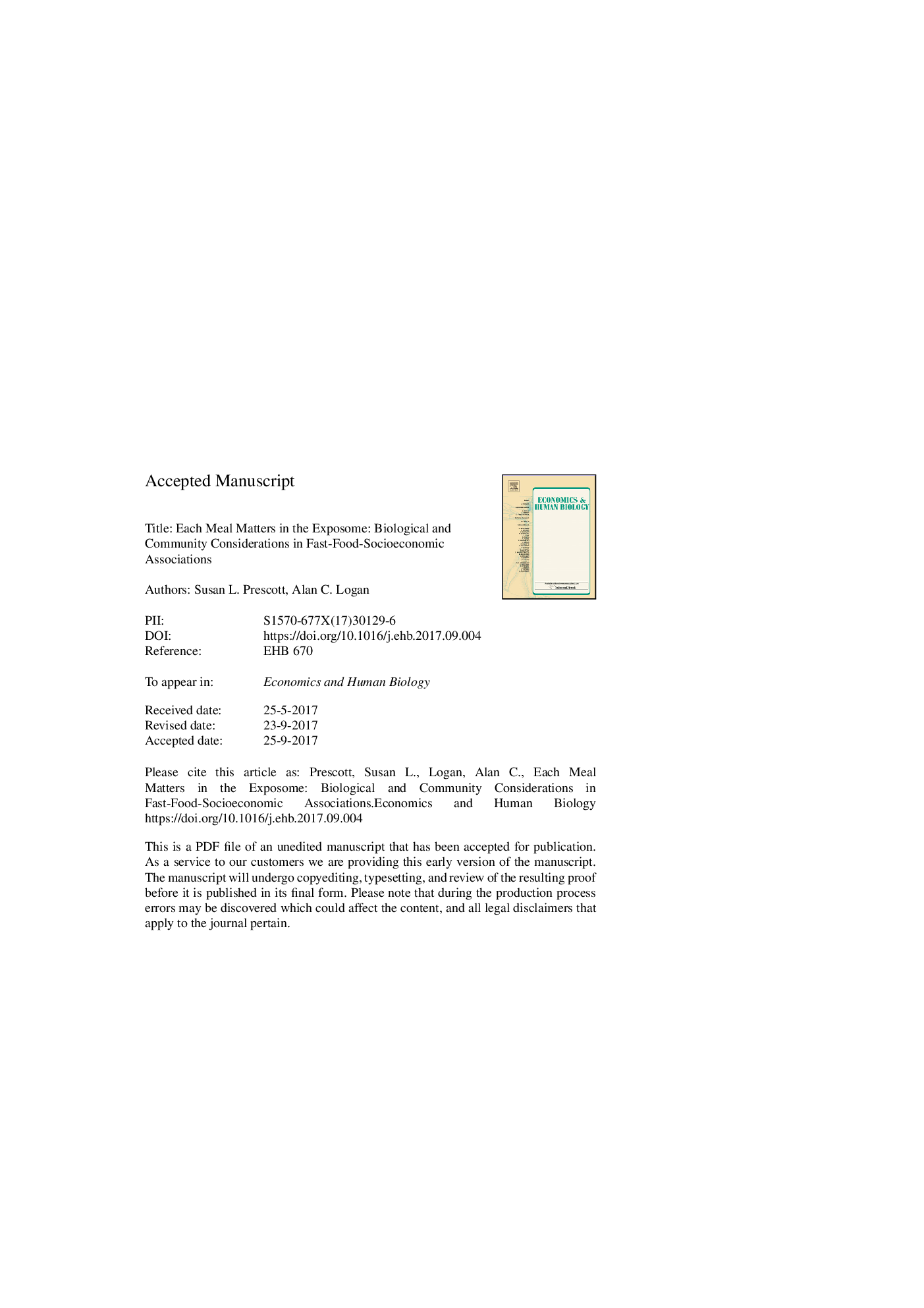| کد مقاله | کد نشریه | سال انتشار | مقاله انگلیسی | نسخه تمام متن |
|---|---|---|---|---|
| 7348326 | 1476551 | 2017 | 25 صفحه PDF | دانلود رایگان |
عنوان انگلیسی مقاله ISI
Each meal matters in the exposome: Biological and community considerations in fast-food-socioeconomic associations
ترجمه فارسی عنوان
هر وعده غذا در معاینه مهم است: ملاحظات زیستی و اجتماعی در انجمن های غذایی فوری، اجتماعی و اقتصادی
دانلود مقاله + سفارش ترجمه
دانلود مقاله ISI انگلیسی
رایگان برای ایرانیان
کلمات کلیدی
Food and nutritionNon-communicable diseases (NCDs)Equity - انصافEcology - بومشناسیHeart disease - بیماری قلبیHealth policy - سیاست های بهداشت و سلامتSocioeconomic gradient - شیب اجتماعی-اقتصادیLifestyle medicine - طب سنتیSocial justice - عدالت اجتماعیObesity - مرض چاقیMicrobiome - میکروبیومHealth inequities - نابرابری های بهداشتیHolism - هالیسمDisease prevention - پیشگیری از بیماری
موضوعات مرتبط
علوم زیستی و بیوفناوری
علوم کشاورزی و بیولوژیک
علوم کشاورزی و بیولوژیک (عمومی)
چکیده انگلیسی
Advances in omics and microbiome technology have transformed the ways in which the biological consequences of life in the 'ecological theatre' can be visualized. Exposome science examines the total accumulated environmental exposures (both detrimental and beneficial) as a means to understand the response of the 'total organism to the total environment' over time. The repetitive stimulation of compensatory physiological responses (immune, cardiovascular, neuroendocrine) in response to stress - including sources of stress highly relevant to socioeconomic disadvantage - may lead to metabolic dysregulation and cellular damage, ultimately influencing behavior and disease. The collective toll of physiological wear and tear, known as allostatic load, is not paid equally throughout developed societies. It is paid in excess by the disadvantaged. In the context of fast-food, human and experimental research demonstrates that the biological response to a single fast-food-style meal - especially as mediated by the microbiome- is a product of the person's total lived experience, including the ability to buffer the fast-food meal-induced promotion of inflammation and oxidative stress. Emerging research indicates that each meal and its nutritional context matters. As we discuss, equal weekly visits to major fast-food outlets by the affluent and deprived do not translate into biological equivalency. Hence, debate concerning reducing fast-food outlets through policy - especially in disadvantaged neighborhoods where they are prevalent - requires a biological context. The fast-food establishment and fast-food meal - as they represent matters of food justice and press upon non-communicable disease risk - are far more than physical structures and collections of carbohydrate, fat, sugar and sodium.
ناشر
Database: Elsevier - ScienceDirect (ساینس دایرکت)
Journal: Economics & Human Biology - Volume 27, Part B, November 2017, Pages 328-335
Journal: Economics & Human Biology - Volume 27, Part B, November 2017, Pages 328-335
نویسندگان
Susan L. Prescott, Alan C. Logan,
